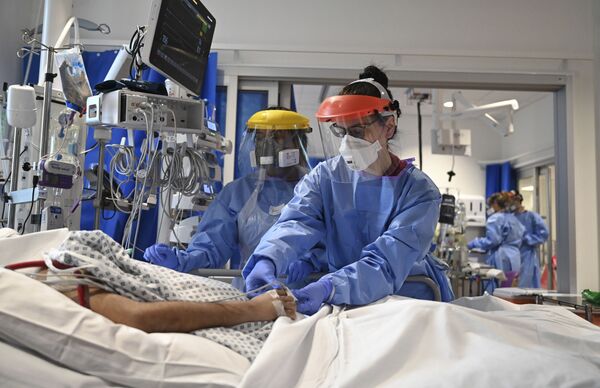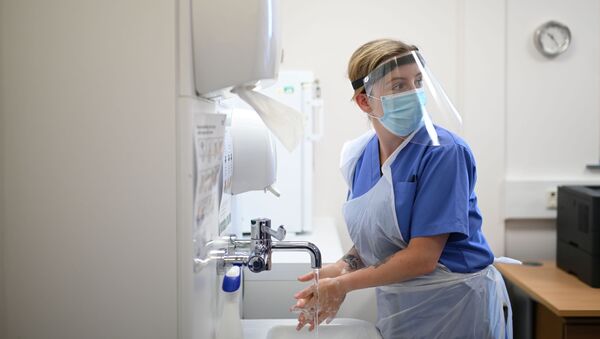The UK government has demonstrated a lack of clear strategy to procure and distribute the personal protective equipment (PPE) required to ensure the safety of clinical and care workers in a possible second wave of COVID-19, according to a warning issued by the Public Accounts Committee, The Guardian writes.
Cross-party committee MPs, who are “extremely concerned” over shortfalls of key PPE items witnessed during the first wave of the Covid-19 pandemic, have urged the government to speed up plans to replenish current stocks, in order to adequately deal with a potential further outbreak.
Arrangements for procuring and distributing PPE were “unclear”, stated the committee, while “uncertainty prevails” regarding planned future local provision.
Parliament’s spending watchdog on Wednesday insisted that a detailed roadmap for stocking the National Health Service (NHS) and care sector with gowns, masks, eye protection and gloves be ready by the time ministers return from their summer recess.
Chair of the Public Accounts Committee Meg Hillier was quoted as saying:
“The government conducted a large pandemic practice exercise in 2016 but failed to prepare. The previous committee warned on the lack of plans to ensure access to medicines and equipment in the social care sector in the event of a no-deal Brexit, but, again, the government failed to prepare. There must be total focus now on where the problems were in procurement and supply in the first wave, and on eradicating them.”
The committee report also slammed the government’s failure to acknowledge PPE shortfalls registered earlier, and voiced its concerns regarding the ability of the UK Department of Health and Social Care to remedy the failings.
“Although the department says it is committed to building up stocks to meet longer-term demand, we were not convinced that it was treating the matter with sufficient urgency,” the report said.
The Public Accounts Committee concluded that the department should inform it within two months of a timeline regarding when it expects to accumulate a predictable supply of PPE stock to supply the NHS and care sectors.
Another issue the report examined was NHS capital expenditure. While it was acknowledged that the government had provided “significant” additional funding throughout the coronavirus-induced health crisis, such as writing off £13.4 bln in loans, underlying problems of financial sustainability had been overlooked.
In response, a spokesperson for the Department for Health and Social Care pledged the government would continue to provide the NHS with “whatever it needs”.
However, the department took issue with the committee’s findings pertaining to the supply of PPE.

“We have been working round the clock to deliver PPE to the frontline throughout this global pandemic... Two billion items of PPE have now been delivered and almost 28 bln items have been ordered from UK-based manufacturers and international partners to provide a continuous supply, which will meet the future needs of health and social care staff,” said a spokesman.
With data suggesting that over 300 healthcare workers have died of the coronavirus respiratory disease, NHS staff groups and families have been claiming that shortages of PPE had rendered them vulnerable in the face of the pandemic.
During the onslaught of the COVID-19 scarce, supplies had forced front-line medical workers treating those with the disease to reuse PPE and even improvise.
In April, nurses working at Northwick Park Hospital in northwest London were pictured wearing trash bags on their heads and feet, only to be later diagnosed with COVID-19, a senior source at the hospital was cited as saying by The Telegraph.
The hospital had reportedly been the first in the country to declare a critical incident due to a shortage of equipment.


